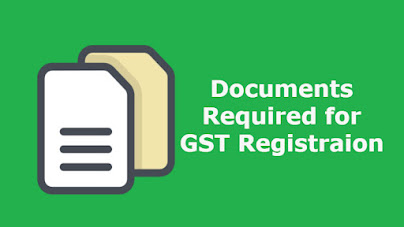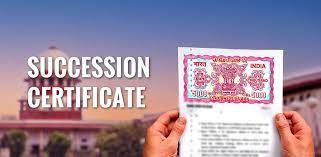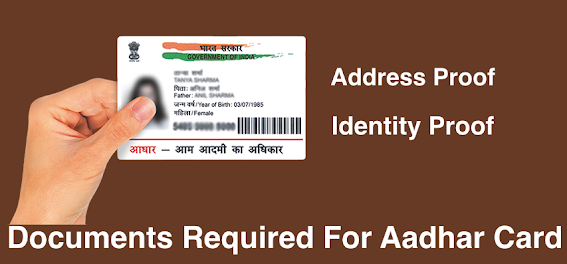Documents Required For GST Registration
The Goods and Services Tax (GST) is a comprehensive indirect tax levied on the supply of goods and services in India. GST has simplified the taxation system by replacing various indirect taxes such as excise duty, service tax, and value-added tax (VAT). It is mandatory for businesses with a specified turnover to register for GST and comply with its regulations. In this article, we will discuss the documents required for GST registration.
GST registration is a crucial step for businesses operating in India as it allows them to collect and remit GST to the government. It also enables them to avail of input tax credit, which helps in reducing the overall tax liability. To register for GST, businesses need to submit certain documents to the Goods and Services Tax Network (GSTN), the nodal agency responsible for administering GST. Let's take a look at the essential documents required for GST registration:
1. PAN Card: Permanent Account Number (PAN) is a unique 10-digit alphanumeric number issued by the Income Tax Department. Every business entity or individual applying for GST registration must have a PAN card.
2. Identity and Address Proof: The following documents can be submitted as proof of identity and address:
a. Aadhaar Card: Aadhaar card is a biometric identification card issued by the Unique Identification Authority of India (UIDAI). It serves as a proof of identity and address for individuals.
b. Passport: In case of foreign individuals or non-resident Indians (NRIs), a passport can be submitted as a proof of identity and address.
c. Voter ID Card: Voter ID card issued by the Election Commission of India can be used as a proof of identity and address.
d. Driving License: A valid driving license can be submitted as a proof of identity and address.
e. Ration Card: Ration card issued by the government can be submitted as a proof of identity and address.
3. Photograph: Recent passport-sized photographs of the individual or authorized signatory must be provided along with the GST registration application.
4. Business Registration Proof: The type of business entity determines the documents required as proof of registration. Here are the documents required for different types of businesses:
a. Proprietorship: For a proprietorship firm, no separate registration is required. The proprietor's PAN card and address proof are sufficient.
b. Partnership Firm: Partnership deed, which outlines the partnership arrangement, should be submitted. The partnership deed should be notarized and signed by all partners. Additionally, the PAN card and address proof of the partners are also required.
c. Limited Liability Partnership (LLP): LLPs must submit the LLP agreement along with the registration certificate issued by the Registrar of Companies (ROC). The PAN card and address proof of the designated partners are also necessary.
d. Private/Public Limited Company: Certificate of incorporation issued by the Registrar of Companies (ROC) and Memorandum and Articles of Association (MOA/AOA) should be submitted. The PAN card and address proof of the directors and shareholders are required.
e. Society/Trust: For societies or trusts, the registration certificate and the governing document such as the trust deed or memorandum of association must be submitted. The PAN card and address proof of the trustees or members are also necessary.
5. Bank Account Details: A canceled cheque or bank statement reflecting the entity's name, address, and bank account number is required for GST registration.
6. Digital Signature Certificate (DSC): DSC is required for certain businesses as per GST rules. It is used to digitally sign the GST application and authenticate the identity of the applicant. DSC can be obtained from certifying authorities.
7. Letter of Authorization: In the case of authorized signatories, a letter of authorization stating the name
Certainly! Here are some more documents that may be required for GST registration:
8. Proof of Business Place: Documents establishing the ownership or legal possession of the business premises must be submitted. This can include documents such as the property deed, lease agreement, or rent agreement.
9. Business Bank Account Statement: A bank statement for the business bank account, covering the last three months, should be provided. This helps in verifying the financial transactions and establishing the validity of the business.
10. Board Resolution: In the case of a company or LLP, a board resolution authorizing a designated person to sign and submit the GST application on behalf of the company is required.
11. Authorized Signatory Details: For businesses with an authorized signatory other than the proprietor or partners, documents such as a letter of authorization, proof of identity, and address proof of the authorized signatory must be submitted.
12. Proof of Constitution: Depending on the type of business entity, additional documents related to the constitution of the business may be required. For example, in the case of a partnership firm, a partnership deed should be submitted.
13. NOC from the Landlord: If the business premises are rented, a No Objection Certificate (NOC) from the landlord allowing the business to use the premises for commercial purposes should be provided.
14. Goods and Services Description: A detailed description of the goods or services provided by the business should be mentioned in the application. This helps in classifying the business under the appropriate GST tax rates.
15. Digital Photographs: Digital photographs of the business owner, partners, directors, or authorized signatories may be required as part of the application process.
It's important to note that the specific documents required for GST registration may vary depending on the nature of the business and the state in which the registration is being done. It is advisable to check the official GST portal or consult a professional to ensure accurate and up-to-date information regarding the required documents.
In conclusion, GST registration is a significant step for businesses operating in India. By providing the necessary documents, businesses can successfully register for GST and comply with the taxation system. It is essential to gather all the required documents and ensure their accuracy and validity to avoid any delays or complications in the registration process.




Comments
Post a Comment